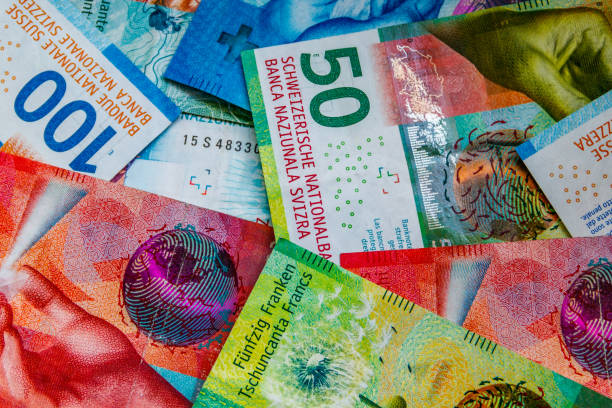- Bitcoin Drops to $70,000. U.S. Government Refuses to Bail Out Market, End of Bull Market or Golden Pit?
- Gold rallies further beyond $5,050 amid flight to safety, dovish Fed expectations
- Bitcoin Bottom Debate: $70,000 or $50,000?
- A Crash After a Surge: Why Silver Lost 40% in a Week?
- Bitcoin Slips Below 75,000 Mark. Will Strategy Change Its Mind and Sell?
- Bitcoin Rout. Bridgewater Founder Dalio Publicly Backs Gold.

USD/CHF softens to near 0.8860 in Friday’s early European session.
The escalation in the Russia-Ukraine war might support the Swiss Franc.
Bets for a less dovish Fed might help limit the USD’s losses.
The USD/CHF pair trades with mild losses around 0.8860 during the early European session on Friday. The fears of a potential escalation in the Russia-Ukraine conflict boost the safe-haven flows, benefiting the Swiss Franc (CHF) against the Greenback. Traders await the flash US S&P Global Purchasing Managers Index (PMI) data and the final Michigan Consumer Sentiment on Friday for fresh impetus.
Russian President Vladimir Putin said on Thursday that Russia carried out a strike with a “ballistic missile with a non-nuclear hypersonic warhead” with a medium range on the Ukrainian city of Dnipro, per CNN. Putin also warned the West that Moscow could attack any country's military facilities that utilised weapons against Russia. The development surrounding the Russia-Ukraine war will be closely watched, and any signs of rising geopolitical risks could lift the safe-haven currency like the CHF in the near term.
On the other hand, the rising expectation of less aggressive monetary policy easing by the US Federal Reserve (Fed) might support the US Dollar (USD). On Thursday, Chicago Fed President Austan Goolsbee reiterated his support for another interest rate cut and his openness to doing them more slowly. Goolsbee added that inflation over the last year and a half has eased and is on its way to the Fed's 2% target.
Swiss Franc FAQs
The Swiss Franc (CHF) is Switzerland’s official currency. It is among the top ten most traded currencies globally, reaching volumes that well exceed the size of the Swiss economy. Its value is determined by the broad market sentiment, the country’s economic health or action taken by the Swiss National Bank (SNB), among other factors. Between 2011 and 2015, the Swiss Franc was pegged to the Euro (EUR). The peg was abruptly removed, resulting in a more than 20% increase in the Franc’s value, causing a turmoil in markets. Even though the peg isn’t in force anymore, CHF fortunes tend to be highly correlated with the Euro ones due to the high dependency of the Swiss economy on the neighboring Eurozone.
The Swiss Franc (CHF) is considered a safe-haven asset, or a currency that investors tend to buy in times of market stress. This is due to the perceived status of Switzerland in the world: a stable economy, a strong export sector, big central bank reserves or a longstanding political stance towards neutrality in global conflicts make the country’s currency a good choice for investors fleeing from risks. Turbulent times are likely to strengthen CHF value against other currencies that are seen as more risky to invest in.
The Swiss National Bank (SNB) meets four times a year – once every quarter, less than other major central banks – to decide on monetary policy. The bank aims for an annual inflation rate of less than 2%. When inflation is above target or forecasted to be above target in the foreseeable future, the bank will attempt to tame price growth by raising its policy rate. Higher interest rates are generally positive for the Swiss Franc (CHF) as they lead to higher yields, making the country a more attractive place for investors. On the contrary, lower interest rates tend to weaken CHF.
Macroeconomic data releases in Switzerland are key to assessing the state of the economy and can impact the Swiss Franc’s (CHF) valuation. The Swiss economy is broadly stable, but any sudden change in economic growth, inflation, current account or the central bank’s currency reserves have the potential to trigger moves in CHF. Generally, high economic growth, low unemployment and high confidence are good for CHF. Conversely, if economic data points to weakening momentum, CHF is likely to depreciate.
As a small and open economy, Switzerland is heavily dependent on the health of the neighboring Eurozone economies. The broader European Union is Switzerland’s main economic partner and a key political ally, so macroeconomic and monetary policy stability in the Eurozone is essential for Switzerland and, thus, for the Swiss Franc (CHF). With such dependency, some models suggest that the correlation between the fortunes of the Euro (EUR) and the CHF is more than 90%, or close to perfect.
Read more
* The content presented above, whether from a third party or not, is considered as general advice only. This article should not be construed as containing investment advice, investment recommendations, an offer of or solicitation for any transactions in financial instruments.




